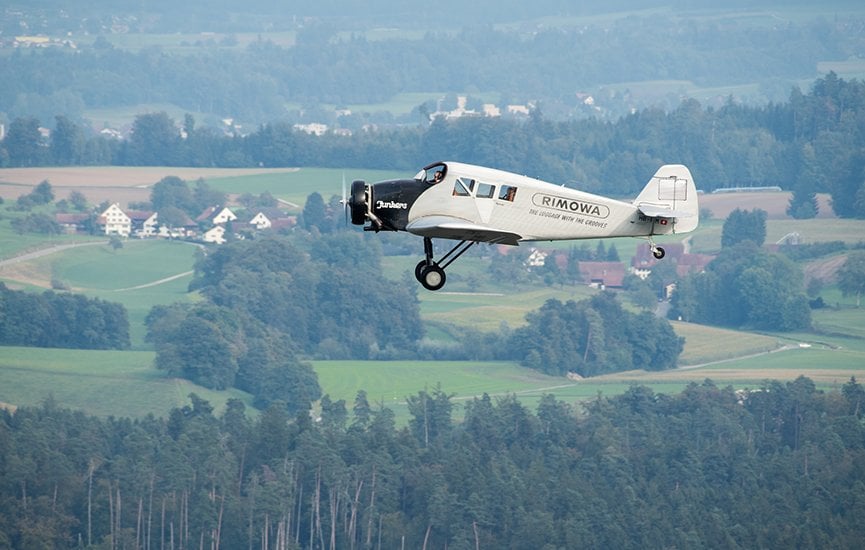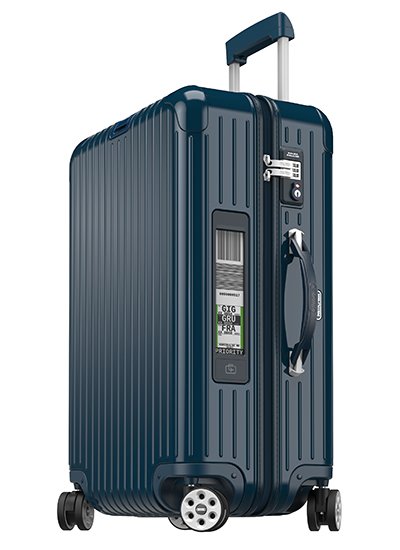German-based Rimowa is known around the world for its signature ridged metal luggage. The company, founded in 1898, has used the material, which gives its products an extraordinary lightness and durability, for over 60 years.
Before it became identified with Rimowa, the sheet metal, called Duralumin, was used to create the first all-metal commercial plane, the Junkers F13. The monoplane, built in 1919 by German engineer and visionary Hugo Junkers, featured cantilevered wings and achieved record altitudes thanks to the lightness of its material.
Now Rimowa is celebrating the link between the two products. The company helmed a seven-year project to reconstruct the Junkers F13 from scratch, and president and CEO Dieter Morszeck, a private pilot for 34 years, copiloted the plane in a 30-minute maiden voyage over Zurich on September 15.

“It was a dream come true,” he says of flying in the plane’s open cockpit. “I wanted to give the world an important cultural asset back—not in a museum, but where it belongs, in the skies.”
A team of 13 engineers used state-of-the-art 3D software, archived blueprints and original schematics to create plans for the first Junkers F13 to be airborne since 1951. Assembled in the Black Forest in Germany, the plane required two years to complete, using 2,600 parts secured with 35,000 rivets. The reconstructed engine delivered 450 hp with a cruising speed of about 109 mph.
The project was a partnership between Rimowa and Kälin Aero Technologies, MSW Aviation, Naef Flugmotoren, AeroFEM, the Association of Friends of Historical Aircraft and Ju-Air. Rimowa plans to sell the custom plane.
While honoring its history, Rimowa is also looking ahead with its new electronic tag, an innovation in luggage handling.
The digital tag, built right into the side of the suitcase, is controlled by an app on travelers’ smartphones. Travelers check in the bag electronically, then drop it off at a designated spot, avoiding lines. The tags can’t be torn off in transit, like paper tags, reducing misrouted bags. And they allow travelers to track their bags wherever they go.
“The system marks the beginning of the digital revolution. It has proven very simple and intuitive to operate,” says Sven Lepschy, vice president of Rimowa Electronic Tag. Rimowa’s launch partner, Lufthansa has used the system since the beginning of the year, and Taiwan’s EVA Air begins using it on December 1. Rimowa is in discussions with about 30 other airlines to implement the system, including United Airlines.

Junkers F-13 vintage plane: $2.5 million. For more information, visit rimowa-f13.com
Electronic Tag suitcases: $695 to $1,725. For more information, visit rimowa.com/en-us/stores







